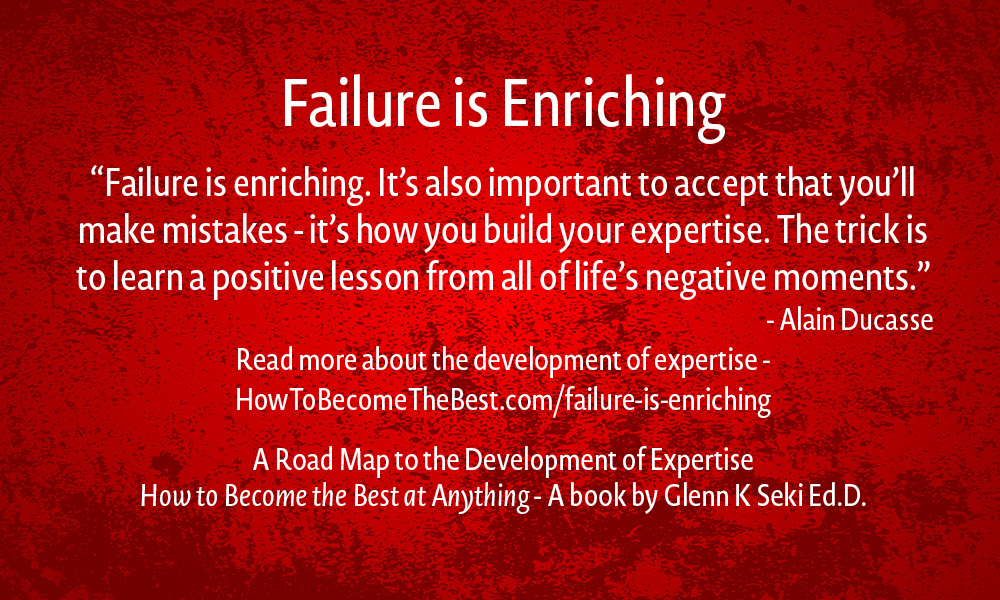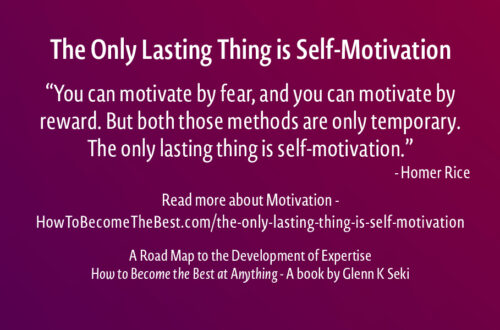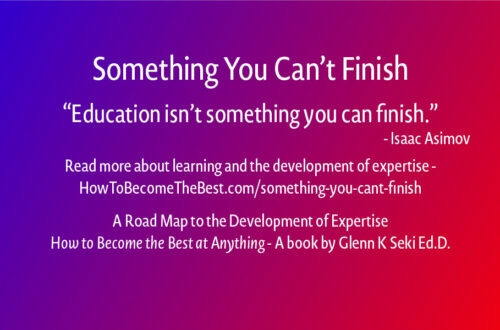“Failure is enriching. It’s also important to accept that you’ll make mistakes – it’s how you build your expertise. The trick is to learn a positive lesson from all of life’s negative moments.” – Alain Ducasse
An excerpt from How To Become The Best at Anything, Chapter 9, Persistence, Motivation, and More About Your Path
Staying on Your Path
“Once you have traveled your path for awhile you will have some successes and some failures. You take the successes and use them to help fortify your resolve and your belief in yourself that you can reach your goal. You take the failures and use them to learn about your weak points and guide your practice, so your weak points become your strong points.
You need to expect that you will do well. You need to expect that you will have failures. You need to believe that you can learn from your successes and failures. You need to believe that hard work and persistence will help you reach your goal.”
How You Feel About Yourself
“Here is some academic educational jargon, self-esteem vs self-efficacy. You need to understand the difference between them because there is a lot of misinformation about how you need to have high self-esteem to have high achievement. This is not so.
You have probably heard of self-esteem. If you feel good about yourself, you are generally thought to have high self-esteem. Unfortunately, this does not mean you will be a high achiever in the domain you are trying to become the best.
You might not be very popular at school, but you are a math wiz. You know you can do anything when it comes to math, but you feel awkward in social settings, you only have a couple of friends, you aren’t popular, and you don’t feel good about yourself. You have low self-esteem.
When you are in your domain of math, working very complex problems, putting lots and lots of time to get better at math you feel very good about yourself when it comes to math. This is called having high self-efficacy in the domain of math. Self-efficacy is domain specific and high self-efficacy in a domain leads to higher achievement. This means you can be very confident in a specific domain, be very successful in that domain, but have low self-esteem.
You need to be successful in the domain in which you are trying to become the best. Success leads to more success. A little success in the beginning leads to more and more success. The belief that you can be successful in your domain is key to your success. This will keep you going when you have failures. You have to believe that hard work, deliberate practice, etc. will make you successful. This is high self-efficacy in a particular domain. You can feel bad about yourself in one area but have great success and achievement in another. Focus on the successes in the domain you are trying to become the best and use that to help motivate you to keep going. You must persist to become the best.
You also need to feel like you are in control of your successes and failures.”





